Matthew J. Tuininga's Blog
March 18, 2025
Wall Street Journal Review of My Book
The Wall Street Journal published a positive review of my book today. Here are a few of the highlights:
“In “The Wars of the Lord,” a judicious and balanced account of the relations between English settlers and the region’s indigenous peoples during the 17th century, Matthew J. Tuininga argues that the Puritans’ spiritual struggles were indeed inseparable from their military actions, the two being regulated by the primacy of their Christian faith.”
“The contradiction between the peaceful initiatives to proselytize and the military campaigns that verged on genocide has led some modern historians to accuse the Puritans of hypocrisy. Mr. Tuininga, a professor at Calvin Theological Seminary in Michigan, absolves them of that charge, arguing that their actions—benevolent and hostile alike—were governed by the same religious belief: Just as Puritan Christianity was used to justify efforts to evangelize, so it was invoked to enslave or kill the enemies of God’s chosen people. “Christianity was the framework,” Mr. Tuininga writes, that the Puritans used “to guide, interpret, and defend everything they did.””
“The author exploits rich primary sources, including the eyewitness testimonies of English and Algonquian participants.”
Read the whole review here!
February 21, 2025
Interviews about The Wars of the Lord
I’m excited to see the energy surrounding the release of my new book The Wars of the Lord: The Puritan Conquest of America’s First People. On Wednesday Calvin Theological Seminary held a book launch in which I was interviewed by my colleague Danny Daley, followed by a book signing. The event was filled to max capacity. You can watch the event here.
I also did a podcast on the book with Leah Jolly, which you can watch here.
Finally, I wrote an article for The Gospel Coalition exploring the question of whether or not the Puritans were hypocrites, which you can read here.
Order the book on Amazon, and if you are interested in having me speak about it, please reach out to me via the Contact link on this website.
February 3, 2025
History is not a Marvel movie
I am grateful to John Fea of Messiah University for interviewing me about my book at Current:
John Fea: Why do we need to read The Wars of the Lord?
Matthew Tuininga: Americans continue to argue about the meaning of America and the role Christianity has played in it. Yet all too often we oversimplify the story by either valorizing or demonizing the various players. We like our history like a Marvel movie – with heroes and villains. Were the early colonists heroic, pious Christians pursuing liberty and prosperity in a new world? Or were they greedy, bigoted opportunists seeking to exploit Native Americans and seize their land? The answer is neither, and both. The Wars of the Lord tells this story honestly in all its complexity, without reducing its characters to heroes or villains. If readers want to understand how colonization actually happened, this book is an excellent place to start.
January 24, 2025
Release of The Wars of the Lord
My new book, The Wars of the Lord: The Puritan Conquest of America’s First People (Oxford University Press) is out, and it has received positive reviews from the prestigious Kirkus Reviews and from Christianity Today.
Kirkus Reviews concludes, “Tuininga’s book does a good job of sorting out the complexities of one of America’s bloodiest, if little-known, conflicts. A capable study of cultures and ideologies in collision.” Read the full review here.
John Turner, at Christianity Today, writes, “The Wars of the Lord is a landmark history of 17th-century New England… Tuininga combines sharp analysis with a readable and even entertaining narrative… The Wars of the Lord is an antidote to contemporary political debates about the American past, which are not so much about the facts of history as about the relative importance placed on them… Tuininga demonstrates that the best response to these and related questions is simply to write good history.” Read Turner’s full review here.
I also did a podcast with Leah Jolly at Calvin Theological Seminary about some of the background to the book, which you can watch here.
And if you have not already purchased the book, which you can do as a Kindle or as a hard copy, order it at Amazon today!

April 25, 2018
Christian Ethics, Protestant and Catholic: 500 Years After the Reformation
The reformers broke dramatically with the Roman Catholic Church when it came to the doctrines of salvation and ecclesiology. They did not do so with respect to ethics. In fact, in some ways, their views were closer to traditional Catholic ethical thought than they were to much of the Protestant tradition that has followed them. On any number of ethical and political topics, the thought of John Calvin is closer to that of the medieval theologian Thomas Aquinas than either of them are to any number of Protestant ethicists today.
For many years Protestant theologians preferred to contrast Protestant ethics with Roman Catholic ethics. Protestant ethics was centered on biblical authority, they argued, while Roman Catholic ethics, because of its natural law tradition, was far too enamored with the powers of human reason. Protestants emphasized the consistency of the Bible’s moral teaching, summarized in the Ten Commandments, while Roman Catholics wrongly contrasted the new law of the gospel with the old law of Israel. Protestants called all Christians to the same level of righteousness, while Catholics taught that certain Christians – clergy, monks, and nuns – are called to follow the higher evangelical counsels of Christ’s teaching.
In some ways, to be sure, the reformers themselves paved the way for this contrast. While they upheld the traditional Christian teaching that God’s moral will is written on the human heart and in the creation order (i.e., natural law), they expressed fresh skepticism regarding the capabilities of human reason. While they insisted that Christians were to interpret the Ten Commandments in light of the law’s fulfillment in Christ, they downplayed any meaningful contrast between the ethical teaching of the old and new testaments. They emphasized the vocational ordinariness of the Christian life and softened the radicalism of Christian discipleship.
Over time, however, many evangelical Protestants virtually abandoned the concept of natural law altogether, in favor of an emphasis on biblical authority. And because of their emphasis on the Ten Commandments as the perfect expression of God’s moral will, they largely ignored the distinctiveness of the New Testament’s virtue-oriented, Christocentric approach to ethics. Thus one could look far and wide for any meaningful Protestant study of Christian virtues akin to that of Aquinas.
The conflict between Protestant and Catholic political theologies grew even sharper. Protestants embraced political liberalism, religious freedom, and natural rights quite early, while the Catholic Church fiercely rejected all such modern political ideologies as alien to the one true faith of Catholicism. In the age of brutal religious wars that ripped apart Europe and rippled throughout the world, Protestants identified the papacy as the antichrist, always fearing that Catholics sought to rob them of their liberties and force them into submission to the pope.
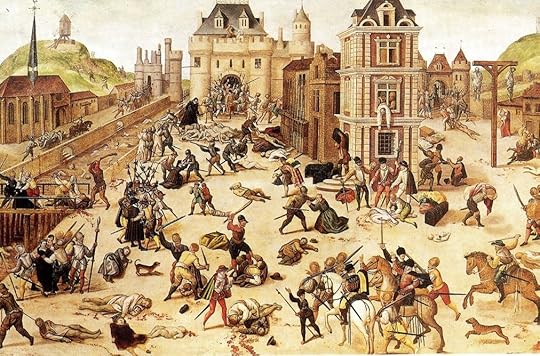
Two major forces began to change all of this in the latter part of the twentieth century. First, the Roman Catholic Church opened itself ecumenically to Protestantism after Vatican II. Second, Protestants and Catholics alike came to view secularism and the increasing abandonment of Christianity as the far graver threat. Catholic thinkers sought to learn from the Protestant tradition’s embrace of political liberalism. Protestant theologians became interested in the ways in which the reformers stood in continuity with pre-reformation Christian tradition. Catholic social thought began to emphasize the ideals of liberty and equality, while Protestant ethicists began to rediscover the value of the natural law tradition, with its rich potential for moral reasoning in pluralistic contexts. Catholics came to appreciate the active role of the Bible in Protestant ethics, while Protestants sought to glean from the Catholic liturgical tradition a fresh understanding of the role of worship in moral formation. Catholics looked to Protestants for a sense of the virtue of ordinary Christian vocations, while Protestants looked to Catholics for insight into the nature of a Christian virtue ethic. The result has been a growing convergence among Reformed and Catholic ethicists, even as important differences remain.
Convergence among theologians and academics is paralleled in culture and in the public square. The U.S. Supreme Court’s legalization of abortion-on-demand in 1973, in Roe v. Wade, brought Catholic and Protestant clergy together like never before as they struggled to witness to the sanctity of human life. Similarly, the sexual revolution, with its ever more radical conclusions regarding sex, gender and marriage, has reminded Catholics and Protestants just how much they have in common as heirs of a Christian understanding of the meaning of the body. The late Pope John Paul II’s brilliant reflections on the sanctity of life and the dignity of human sexuality has arguably made him more popular among Protestants than any pope in history.
And yet, the ecumenical convergence has only begun. Profound differences remain. Most profound, perhaps, is the continued Catholic insistence on a higher, more evangelical ethic for clergy and for Christians who have taken vows, well-known because of its implication that Catholic clergy, monks, and nuns may not marry. Also of practical significance are the absolute Catholic prohibitions of birth control and divorce.
Yet even here, as Protestants we have much to learn from our Catholic brothers and sisters. For example, the Catholic church has long promoted and protected Christian celibacy as an alternative to marriage, in line with the example and teaching of Jesus and the Apostle Paul. Likewise, the Catholic church has held faithfully to the sanctity of marriage, insisting that divorce is profoundly incompatible with the sacramental meaning of marriage as an analogy for the unity between Christ and the church. In stark contrast, Protestants have tended to overemphasize marriage as the only ideal life plan for all Christians, while at the same time tolerating and even defending the prevalence of divorce.
Protestants also have much to learn from Catholic social teaching as it pertains to poverty and oppression. Classic Christian thought taught that God has given the world to human beings in common. It affirmed the legitimacy of property subject to the requirement that those who have what they need share with those who do not, in order that the poor might receive justice. This has evolved into the modern Catholic concept of solidarity, which calls Christians to bear the burdens of those who are poor and oppressed. This “preference for the poor” can be found in a reformer such as John Calvin as well, but it has long since fallen by the wayside among many Protestants. Protestants would do well to emulate the Catholic conviction that the sanctity of life requires vigorous protection at every stage and in every form, like a “seamless garment” from beginning to end.
Of course, Protestants and Catholics themselves are so divided on ethical and social matters that often conservatives or progressives of each group feel they have more in common with one another than they do with members of their own denominational traditions. Thus Protestants who hold to the biblical understanding of marriage might find themselves in greater solidarity with the pope than they do with members of their own tradition, while Catholic academics who support same-sex marriage find themselves arm-in-arm with many mainline Protestants. On the other hand, because of its history, breadth, and traditional hierarchy, the magisterial Catholic tradition remains far more cohesive and balanced than does much of Protestant ethics.
It is precisely for this reason that so much fruit might come from continuing Catholic-Protestant convergence in ethics. The more Protestants and Catholics converse with and engage the best of each other’s traditions, the more we discover just how rich, broad, and consistent is the long tradition of Christian moral and social teaching. The questions we wrestle with regarding marriage, human dignity, and care for the poor are not fundamentally new questions, even though we find ourselves asking them in quite different circumstances. The gospel of the kingdom and its righteousness remains the same as it did one thousand and two thousand years ago, and faithful Protestants and Catholics of all denominations will increasingly find that, as pilgrims on the same journey, serving one Lord with one faith, they will come much nearer to their goal if they walk together than if they walk separately.
Note: This article originally appeared in the Forum a publication of Calvin Theological Seminary, as part of a series on what Catholics and Protestants can learn from each other today.
April 4, 2018
Does Two Kingdoms Theology Make Christians into Republicans or Democrats? You Can’t Have It Both Ways
We should all be deeply concerned about two kingdoms theology. Its disastrous effects on the church are evident, are they not? Recent evidence indicates that two kingdoms theology explains why some Christians, such as Christian Right pastor Robert Jeffress, support Donald Trump and the Republican Party. As David R. Brockman warns in the Texas Observer, Jeffress “has deployed Two Kingdoms thinking repeatedly since the presidential election” to justify his support for Donald Trump. If you believe Christianity requires that Christians support the Democratic party, that should be deeply concerning.
But wait. Recent evidence also indicates that two kingdoms theology explains why some Christians, such as Andrew White, candidate for governor of Texas, are Democrats. As Larry Ball warns in the Aquila Report, White’s approach “is deduced from what is called two-kingdom theology.” If you believe Christianity requires that Christians support the Republican party, that should be deeply concerning.
These articles advance arguments I have repeatedly heard from the lips of Reformed theologians and pastors. One highly esteemed Reformed scholar told me he is convinced that two kingdoms theology is on the rise because it gives Christians an excuse to support the Republican party despite its unChristian tendencies on poverty and race. Two kingdoms advocates, he believes, are crypto-Republicans. At the same time, numerous pastors have told me they are convinced that two kingdoms theology is on the rise because it gives Christians an excuse to support the Democratic party despite its unChristian positions on abortion and same-sex marriage. Two kingdoms advocates, it turns out, are crypto-Democrats.
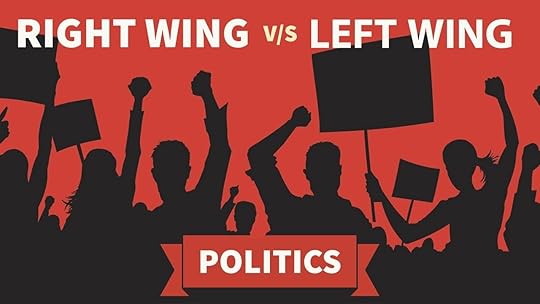
I suppose a cynic would say that this is precisely the problem with two kingdoms theology. It complicates the link between the kingdom of God and the politics of this age, and so it allows Christians to support whatever positions they want, regardless of biblical teaching. Real Christians, thoughtful Christians, know which party is the Christian party. Right? Right?
So which party is it? Just how would Jesus vote if he were to become a citizen in 2018 America?
Who’s right, Brockman or Ball? Jeffress or White? Just which side is two kingdoms theology on! Christians demand to know. Partisans purport to reveal the real truth of the matter.
What if it turns out that Christians have substantial disagreements about politics precisely because neither political party faithfully serves the interests of justice, let alone of the kingdom of God? As my friend Mika Edmondson likes to say, if you have an easy time voting for either the Republicans or the Democrats because you are convinced that their policies align so perfectly with the teachings of Christianity, you have been deceived. The real tragedy, as my friend and colleague John Witvliet has put it, is that Christians feel forced to decide which part of a consistent ethic of life they will support and which part they will abandon.
I know. This is anathema for those who are so convinced that their party is the Christian party. And I know that because two kingdoms theology consistently challenges those who sanctify the politics of either the Right or the Left, articles like these will continue to be written and published. But do not be deceived. Brockman and Ball actually have much in common. They are both frustrated that two kingdoms theology refuses to sanctify their own politics.
This suggests to me that two kingdoms theology is actually getting something right, and that we need more of it, not less. It’s time for the church to stop being co-opted by either the Left or the Right. The gospel has much to say about justice and righteousness – and about politics too – but we only get it right when we seek first the kingdom of God and its righteousness, refusing to confuse that kingdom with America or with the policies of any political party.
It’s time for the church to be the church. If you are sick and tired of the politicization of the church – if you are eager to see the church faithfully witness to the kingdom and its righteousness as it applies to every area of life, without compromise to any political party – then two kingdoms theology is for you.
February 28, 2018
New Affordable Price For My Book!
I am excited to announce that my book, Calvin’s Political Theology and the Public Engagement of the Church: Christ’s Two Kingdoms, is finally going to be available as a paperback – and at an affordable price. You can now pre-order it for just $36.11 at Amazon.com. That’s about a third of the cost you would have had to pay for it until now! The kindle version costs even less than that, and it is already available.
To those of you who did purchase it for the full hardcover price, I thank you. The book has done quite well so far – and received very favorable reviews – and that has helped to make this reasonably priced paperback version possible.
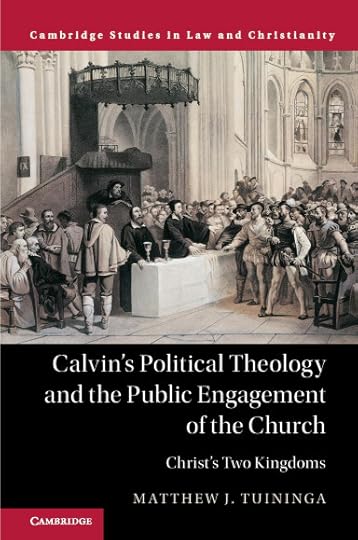
February 27, 2018
Let the Church Be the Church! Calvin’s Theology of Social Justice
In his famous “Letter from Birmingham Jail,” Martin Luther King Jr., accused the white American church of compromising the gospel. The most painful compromise, he argued, was not some churches’ obviously heretical defense of racism and segregation. The most painful compromise came from those moderate white pastors who refused to let the church be the church:
I have heard so many ministers say, “Those are social issues with which the gospel has no real concern,” and I have watched so many churches commit themselves to a completely otherworldly religion which made a strange distinction between body and soul, the sacred and the secular.
Numerous theologians have since picked up on Dr. King’s critique. From the careful Willie Jennings, who maintains that Christian theology has never truly come to grips with its own complicity in colonialism, to the radical James Cone, who famously described the mainstream church’s witness as “white theology,” critics have argued that when it comes to the kingdom and its righteousness, the Western church has lost its way.
It seems easy to dismiss these theologians out of hand. Too many of them appear too willing to jettison orthodox Christian teaching for increasingly radical forms of liberation theology that have little to do with the gospel. And yet, to do so would be to miss an opportunity. The reality is that many of these criticisms of traditional Christianity are far more on target than we’d like to admit.

Jesus and Social Justice
I came to grips with this reality in seminary when I studied Jesus’s preaching in Matthew 5 and Luke 4. The standard evangelical interpretation of Jesus’s proclamation that he came to “proclaim good news to the poor” and “set at liberty those who are oppressed” (Luke 4:18)—at least in the respected commentaries I was reading—was that Jesus was using metaphors to describe salvation from spiritual poverty and oppression. And there seemed to be a general consensus that when Jesus described those who hunger and thirst for righteousness—and are persecuted for it—he was talking about those who yearn for justification and sanctification (Matt. 5:6, 10).
So I was surprised when I turned to John Calvin, only to find that, at least with respect to these passages, his interpretation was closer to that of the liberation theologians than to much of contemporary evangelical theology. For example, on Jesus blessing those who suffer for righteousness’ sake:
I say that not only they who labor for the defense of the gospel but they who in any way maintain the cause of righteousness suffer persecution for righteousness. Therefore, whether in declaring God’s truth against Satan’s falsehoods or in taking up the protection of the good and innocent against the wrongs of the wicked, we must undergo the offenses and hatred of the world, which may imperil either our life, our fortunes, or our honor. (Calvin, Institutes 3.8.7)
I wondered if Calvin’s theology might help the church recover a more faithful gospel witness in the area of social justice. I wasn’t disappointed.
Read the rest of this article at The Gospel Coalition.
January 10, 2018
Why Calvin Thought Discipline Is Essential to the Health of the Church
Soon after John Calvin was appointed as a pastor of the Genevan church, having only recently arrived as a refugee fleeing persecution in his native France, one of his first actions was to petition the city government for the establishment of church discipline. It was a hard sell. In no other Reformed city had the civil magistrates given clergy such authority. The reformers Zwingli and Bullinger maintained that overseeing the moral lives of Christians was a task for the civil magistrate. Most Reformed theologians and magistrates associated ecclesiastical discipline with papal tyranny.
Calvin acknowledged that the Roman church had grievously abused discipline by wielding it tyrannically to accomplish all manner of church goals. To prevent this evil, he called the magistrates “to ordain and elect certain persons of good life and witness from among the faithful” to shepherd the people on behalf of the church as a whole. These elders, along with the pastors, would bind themselves to the procedure laid out by Jesus in Matthew 18, by which professing Christians were to be held accountable to one another in the life of Christian discipleship.
While the city council granted the pastors’ request in principle, it soon became evident that there was little agreement in practice. Calvin found himself banished from the city. Within three years, however, the city asked him to come back. Though he was reluctant, he agreed to return under the condition that church discipline be established. The city relented, though nearly 15 years of conflict remained before the consistory—the body of pastors and elders charged with the ministry of church discipline—could rest secure from political interference.
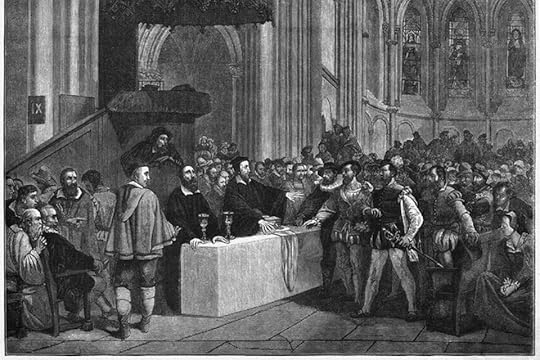
Calvin’s consistory disciplined members of the Genevan church for a wide range of sins including idolatry, violence, sexual immorality, marital problems, and interpersonal conflict. They disciplined men who abused their wives and children, sons who refused to care for their aging parents, landowners who exploited their tenants, doctors who failed to care properly for the sick, merchants who practiced price gouging or sought to prevent economic competition, and employers who exploited or mistreated their workers. While many people were brought before the consistory, temporarily barred from the Lord’s Supper, and required to express public repentance or reconciliation, very few were permanently excommunicated (i.e., banished from participation in the sacraments).
Calvin viewed discipline as a necessary extension of the church’s ministry of word and sacrament. While he did not identify it as a mark of the church, he did insist that discipline is essential to the spiritual health of a church, without which a church cannot long endure.
November 22, 2017
Gentiles, Homosexuality, and Grace in the Body of Christ
As the church wrestles with whether women and men who practice homosexuality ought to be embraced into the full life of the church, it is important to remember that the church has struggled with questions of membership from the very beginning. The primary conflict in the life of the early church had to do with another question: Should Gentiles, who do not keep the mosaic law, be received into the fellowship of the body of Christ?
The church embraced believing Gentiles, but only after an intense conflict that featured breaches of fellowship (between Peter and Paul, among others), intense argument (Paul’s letters to the Galatians and the Romans, among others), and even a major church council (the Jerusalem Council of Acts 15). It took testimonies of special revelation (Peter’s visions in Acts 10), indisputable signs of the outpouring of the Spirit on the Gentiles (Acts 10-11), and careful study of Old Testament prophetic texts to determine that the Spirit was indeed calling believing Gentiles and believing Jews to be united in one body.
In the end, the apostles determined that to deny Gentiles membership in the body of Christ was to deny the gospel. It was to commit the heresy of saying that salvation comes by the law rather than by grace through faith.
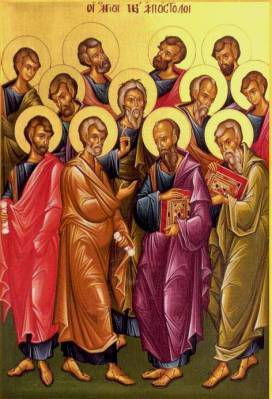
Should the church use the same process of discernment to determine whether or not to receive our gay and lesbian neighbors, friends, and family members into full church membership?
It is an important question because nothing less than the graciousness of the gospel is at stake. To exclude a gospel-believing person from the church because she is same-sex attracted is to abandon the gospel of salvation by grace through faith, without question. And does the exclusion of such a person, if she refuses to give up the practice of homosexuality, also amount to an insistence on salvation by works of the law? What if she confesses the faith of the gospel, as did the Roman centurion Cornelius, who heard Peter preach in Acts 10? What if her life evidences the fruits of the Spirit, as did the Gentiles who experienced their own Pentecost at Antioch (Acts 10)?
A lot is at stake. As Paul put it in Galatians 5:4, “You who are trying to be justified by the law have been alienated from Christ; you have fallen away from grace.”
On the other hand, we must flee the sort of cheap grace that claims justification apart from the fruits of the Spirit. In the same letter Paul warns that those who practice “the acts of the flesh,” including “sexual immorality,” “will not inherit the kingdom of God” (Gal. 5:21).
So we have got to get this right. How exactly did the early church discern that Gentiles, despite their infidelity to the law of Moses, had received the Spirit of Christ? And what would it look like for the 21st-century church to discern whether gay and lesbian men and women have also shared in the blessing of grace?
Read my answer to this question at the Banner, where this article originally appeared.
Matthew J. Tuininga's Blog
- Matthew J. Tuininga's profile
- 1 follower



